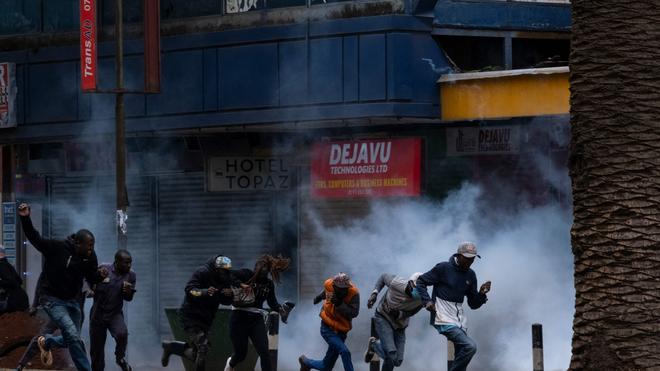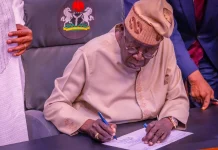Kenyan police on Tuesday resorted to tear gas and rubber bullets in the capital, Nairobi, to control escalating anti-government demonstrations.
The protests, initially sparked by a controversial finance bill, have morphed into broader discontent with President William Ruto’s leadership and accusations of police brutality.
The protests erupted two weeks ago in response to the proposed tax increases. Human rights groups claimed 39 protesters have been killed by security forces, with the most brutal crackdown happening last Tuesday after the parliament passed the bill. Ruto has since dropped the bill, but the protesters are now demanding for his resignation.
Unrest has spread beyond Nairobi, with demonstrations erupting in major cities like Mombasa and Kisumu.
News reports from Mombasa depict chaotic scenes of burning cars as protesters clash with police. The violence has even disrupted judicial activities, forcing the closure of courts in Nairobi.
The Kenya National Commission on Human Rights (KNCHR) has strongly condemned the violence, accusing security forces of excessive force against demonstrators, medics, lawyers, journalists, and even ambulances.
They report hundreds of injuries, disappearances, and arrests alongside the fatalities. Amnesty International provides a slightly lower death toll of 24 protestors.
President Ruto, while speaking at a roundtable interview with journalists on Sunday, defended the police response, claiming they acted appropriately under difficult circumstances. He acknowledged the possibility of “excesses” and promised investigations through existing mechanisms.










